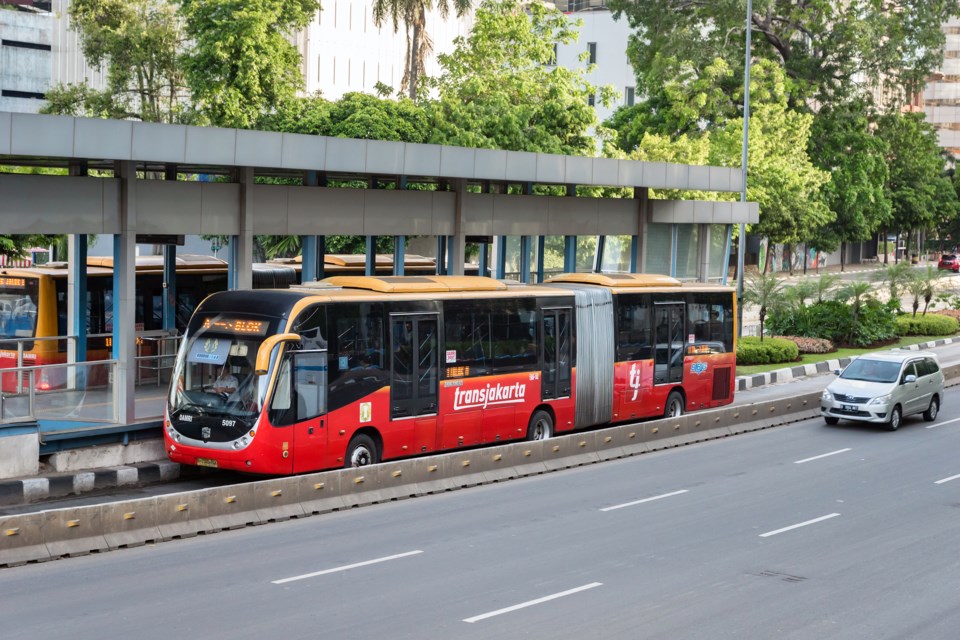Port Coquitlam is throwing its weight behind a new Bus Rapid Transit (BRT) line for the Tri-Cities.
On Tuesday, Oct. 3, the city's committee of council advanced a motion by Mayor Brad West to "express interest" in the system, of which nine are proposed for Metro Vancouver over the next decade.
But West, who chairs TransLink's Mayors Council, gave two caveats: The regional transportation authority is facing a cash crunch, and BRTs will likely be delivered first in municipalities with the highest growth — namely, the North Shore and communities south of the Fraser River.
"I do think it's important that council express its support — its initial tentative support for increased service levels," West said.
"We still don't know when TransLink plans to initiate this process [on BRTs]."
A video example of a Bus Rapid Transit system in the United States.
West said other Tri-Cities officials have signalled their support for a continuous bus line from Maple Ridge to Coquitlam, via Lougheed Highway.
However, it would come with some major infrastructure bills including a replacement bridge over the Coquitlam River in Port Coquitlam, he warned.
Last year, TransLink unveiled its plans to double bus service in 10 years as part of Transport 2050.
The BRT technology — a step up from the current RapidBus — aims to bring specialized zero-emission buses to fully traffic-separated corridors with dedicated stations for passengers to board.
Besides the R3 route upgrade from Haney Place and Coquitlam Central, BRTs are planned for the following routes:
- Hastings Street (upgrade from R5)
- King George Boulevard (Surrey to White Rock)
- Langley–Haney Place (200 St–Golden Ears–Lougheed Highway)
- Lynn Valley– Downtown/Lonsdale (Lions Gate Bridge)
- Marine Dr Station–22nd Street Station (Marine Way)
- Metrotown–Park Royal (Second Narrows)
- Richmond Centre–Metrotown (Knight Street Bridge)
- Scott Road (upgrade from R6)
While PoCo councillors voiced reservation about supporting West's BRT motion, as it was brought late and not on the agenda, the committee backed the mayor saying more frequent and faster public transit is needed in the Tri-Cities.
Coun. Nancy McCurrach said a BRT would act like a rail-based system and the system would relieve bottlenecks along Lougheed Highway.
PoCo's expression of support for BRT "gets the foot in the door," Coun. Darrell Penner added.
"We've seen the congestion grow and grow and grow."
West argued PoCo should get its fair share of public transit as it’s currently underserved compared with other Metro Vancouver jurisdictions.
"The residents of Port Coquitlam deserve as good as anyone else because we sure as hell are paying for it."
The 10-year priorities in Transport 2050 are estimated to cost $21 billion.
Other items on the list include:
- Exploring other potential SkyTrain extensions, including to Newton in Surrey and to Port Coquitlam
- Building the Burnaby Mountain Gondola to Simon Fraser University (SFU)
- Extending the Millennium Line from Arbutus to the University of British Columbia (UBC)
- Increasing HandyDART service by 60 per cent and providing 24-hour service
- Advancing a business case on rapid transit technology on the Metrotown to Park Royal corridor
- Building 450 km of new traffic-separated cycling paths
- Introducing 200 new bike lockers and six new bike parkades
- Increasing SeaBus service start and end times to match SkyTrain’s service hours





